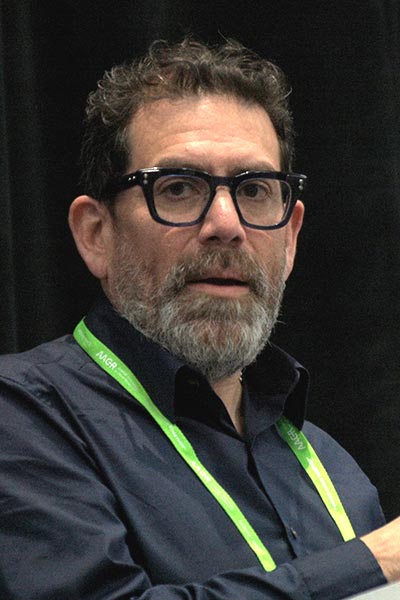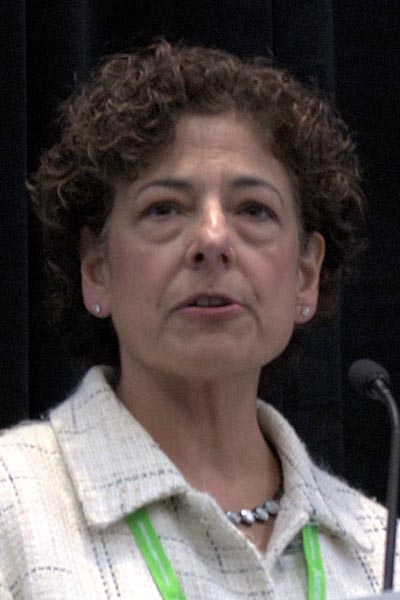AACR-ASCO joint session discusses evolution in detection, treatment of minimal residual disease
//
Estimated Read Time:
The American Association for Cancer Research (AACR) convened a special joint session with the American Society of Clinical Oncology (ASCO) during the AACR Annual Meeting 2024 to address the latest advances in the detection and treatment of minimal residual disease (MRD) in cancer patients.
AACR Immediate Past President Philip D. Greenberg, MD, FAACR, professor and head of immunology at the Fred Hutchinson Cancer Center, and ASCO President Lynn M. Schuchter, MD, director of the Tara Miller Melanoma Center and professor at the University of Pennsylvania Perelman School of Medicine, served as chairs for the session.
The session—AACR-ASCO Joint Session: Strategies for Detecting Minimal Residual Disease (MRD) and How to Apply It in the Clinic—can be viewed on the virtual meeting platform by registered Annual Meeting participants through July 10, 2024.
Progress in MRD assessment in solid tumors and the path to high value clinical applications

Luis A. Diaz Jr., MD, FAACR, head of the Division of Solid Tumor Oncology at Memorial Sloan Kettering Cancer Center, discussed the latest advances in assessing MRD in patients with solid tumors, including progress in the development of assays to detect circulating tumor DNA (ctDNA), which is cell-free DNA shed by tumors into the bloodstream.
“The ctDNA world has really expanded over the last few years, and minimal residual disease is probably one of the areas where liquid biopsies with circulating tumor DNA has the potential to make a very large impact,” Diaz said.
Studies have shown that ctDNA analyses informed by the tumor’s mutations can track low-volume disease with confidence, he said, but clinical applications are lagging.
As an example of how ctDNA analyses could impact patient care, he shared results from a small pilot study showing that patients with mismatch repair-deficient tumors who were ctDNA-positive after standard-of-care therapy benefitted from adjuvant pembrolizumab.
“We’re awaiting results that will change the outcome for our patients,” Diaz said, noting that additional and larger studies are needed and that hopefully they are coming soon.
“[Studies] do take a long time to perform, but I think with more access to circulating tumor DNA technology—and hopefully more appetite by clinical investigators, biotech, and pharma—these types of approaches will become more mainstream.”
Technical and clinical considerations for assessing MRD using ctDNA

Maximilian Diehn, MD, PhD, professor and division chief of Radiation & Cancer Biology at the Stanford University School of Medicine and Stanford Cancer Institute, reviewed ongoing progress in the development and application of ctDNA assays and the utility of ctDNA as a prognostic biomarker.
Six different studies in six different cancers over the last few years have all shown the same thing, he said: “that positive residual ctDNA after surgery is an extremely bad prognostic marker and almost guaranteed to portend recurrence, whereas patients who are ctDNA-negative have a much better outcome,” Diehn said.
How good the outcome is, he noted, varies by study, by disease type, and by assay, but he said the overall finding that the absence of ctDNA is a good prognostic marker and the presence of ctDNA is a bad prognostic marker has now held up across numerous studies across different cancer types and with different assays.
While ctDNA is the best prognostic marker available for early-stage solid tumors, it is not enough, he said.
“We want more than just a prognostic assay that tells us a patient’s outcome is not going to be good—we want to be able to intervene and change that outcome,” Diehn said.
Studies in diverse tumor types are needed because the amount of ctDNA shed by tumors, the impact of treatments, and assays used to measure ctDNA can vary across tumor types. These are all variables that have to be tested clinically, he said.
He outlined approaches to improving ctDNA assay sensitivity, including tracking more mutations, decreasing background error rates, and increasing cell-free DNA levels.
Strategies to therapeutically target dormant and reactivated MRD to prevent cancer recurrence: challenges and opportunities

Angela M. DeMichele, MD, professor and co-leader of the Breast Cancer Research Program at the University of Pennsylvania Perelman School of Medicine and Abramson Cancer Center, discussed ongoing research looking at MRD and the potential to therapeutically target dormant, or inactive asymptomatic, disease in breast cancer.
She cited findings from recent studies—including a mouse trial of hydroxychloroquine, everolimus, or the combination for prevention of recurrent breast cancer—demonstrating that preclinical therapeutic activity promoting disseminated tumor cell (DTC) clearance prolonged recurrence-free survival in dormant cell-bearing mice.
These findings, she said, establish a link between DTC changes and prolongation of relapse-free survival.
In a concurrent phase II human study, DeMichele and colleagues defined the prevalence of DTCs in patients with high-risk breast cancer and established the feasibility of targeting DTCs to improve outcomes. While the results were encouraging, DeMichele noted that larger controlled studies are needed.




